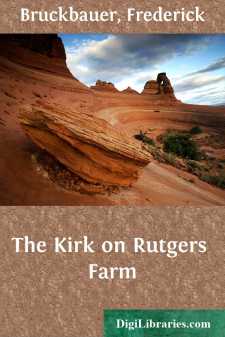Categories
- Antiques & Collectibles 13
- Architecture 36
- Art 48
- Bibles 22
- Biography & Autobiography 813
- Body, Mind & Spirit 142
- Business & Economics 28
- Children's Books 17
- Children's Fiction 14
- Computers 4
- Cooking 94
- Crafts & Hobbies 4
- Drama 346
- Education 46
- Family & Relationships 57
- Fiction 11829
- Games 19
- Gardening 17
- Health & Fitness 34
- History 1377
- House & Home 1
- Humor 147
- Juvenile Fiction 1873
- Juvenile Nonfiction 202
- Language Arts & Disciplines 88
- Law 16
- Literary Collections 686
- Literary Criticism 179
- Mathematics 13
- Medical 41
- Music 40
- Nature 179
- Non-Classifiable 1768
- Performing Arts 7
- Periodicals 1453
- Philosophy 64
- Photography 2
- Poetry 896
- Political Science 203
- Psychology 42
- Reference 154
- Religion 513
- Science 126
- Self-Help 84
- Social Science 81
- Sports & Recreation 34
- Study Aids 3
- Technology & Engineering 59
- Transportation 23
- Travel 463
- True Crime 29
The Kirk on Rutgers Farm
Categories:
Description:
Excerpt
If there be one thing certain about New York it is that nothing remains unchanged. Not only do public works like the bridges change the face of things, but private activity effaces great structures to build up still greater ones. This march of progress is as relentless as a modern army, levelling all before it.
In other lands churches have been spared tho other buildings went down, but even these in New York have disappeared, whole districts being deliberately deserted because churches were no longer able to maintain themselves there financially. This is especially true of the great down-town section of Manhattan, the Old New York, in which only two churches remain that have stood unchanged for a century. Trinity church let old St. John's go, and sixty churches have disappeared in forty years on the lower East Side alone. We lose much when old landmarks go, when we can not make history more vivid for our children by pointing out where the great men of another day worshipt, men of a day when other public assemblies were rare, and the church was the center that radiated influence. The old building is of value because of the living beings associated with it that were the life of the community.
New York has hardly appreciated what its great families have meant for it in the past. The members of the Rutgers family, for instance, always had a noble share in the day and generation in which they lived. Their ancestor came over in the early days from Holland, spent some time about Albany, and then came to New York, branching out till Rutgers bouweries and Rutgers breweries were found in more than one place.
A Rutgers was on the jury in the great Zenger trial that establisht the freedom of the colonial press,—"the germ of American freedom." The Rutgers were Sons of Liberty and the Rutgers farm near Golden Hill was one of their meeting places. A Rutgers was a member of the New York Provincial Congress and also of the Stamp Act Congress. Alexander Hamilton was engaged in a famous case when a Rutgers defended herself against a Tory who had taken possession of her property during the Revolution.
It was a Rutgers who drained the marshes west of the old Collect Pond and so laid the foundations for the Lispenard fortunes: a Lispenard married a fair daughter of his neighbor Rutgers. That stream still runs into the Broadway Subway at Canal Street apparently uncontrollable.
One Rutgers fell in the Battle of Long Island, and while the old father died in Albany, the British revenged themselves on the younger brother by making a hospital of his fine house in New York. The owner kept on fighting for freedom during the whole Revolutionary War, distinguishing himself at White Plains.
Henry Rutgers
This was Henry Rutgers, in whom culminated many of the finest characteristics of a noble ancestry. His breadth of view in an age not quite so broad, is well shown in his attitude towards churches and schools. When he decided to open up his farm in the Seventh Ward for building purposes he gave land at Oliver and Henry Streets, at Market and Henry Streets and at Rutgers and Henry Streets for churches, and there was more for the asking, tho only the Baptists, the Dutch Reformed and the Presbyterians took advantage of the offer. The Rutgers Street site became the birthplace of the Rutgers Presbyterian church, beginning May 13, 1798, in a frame building 36×64....


